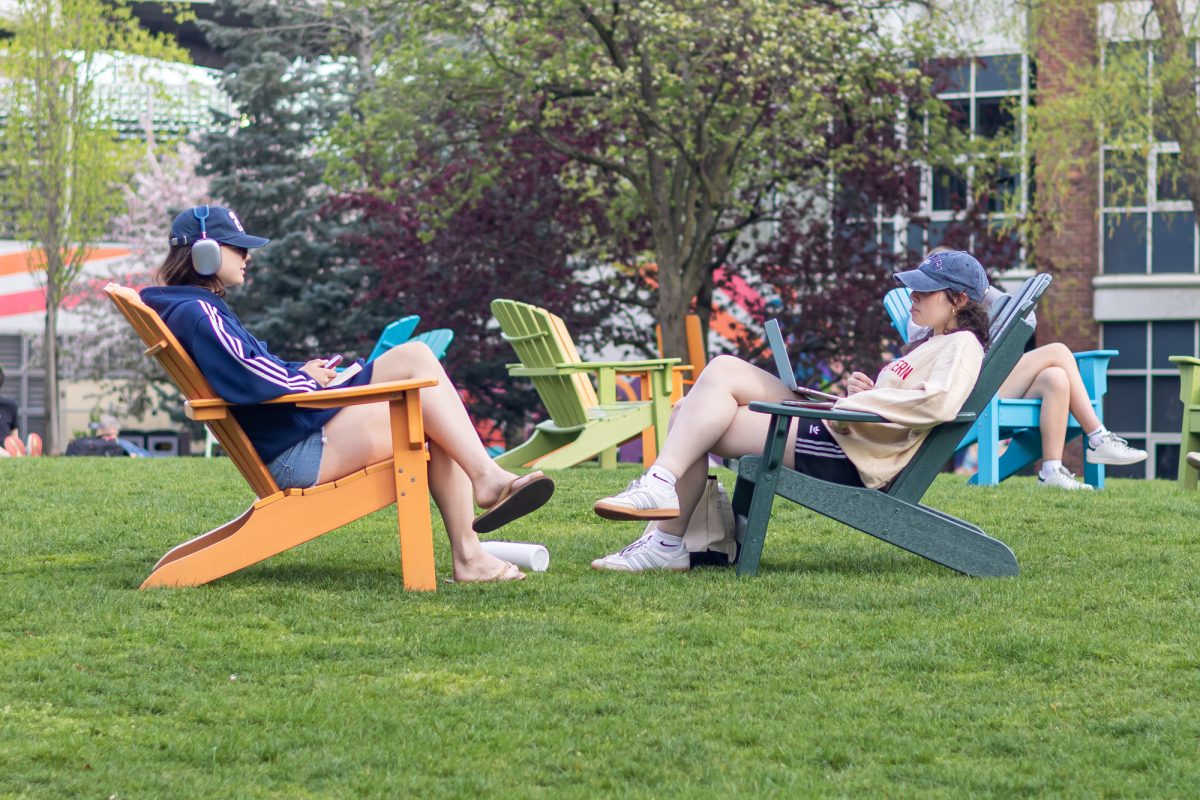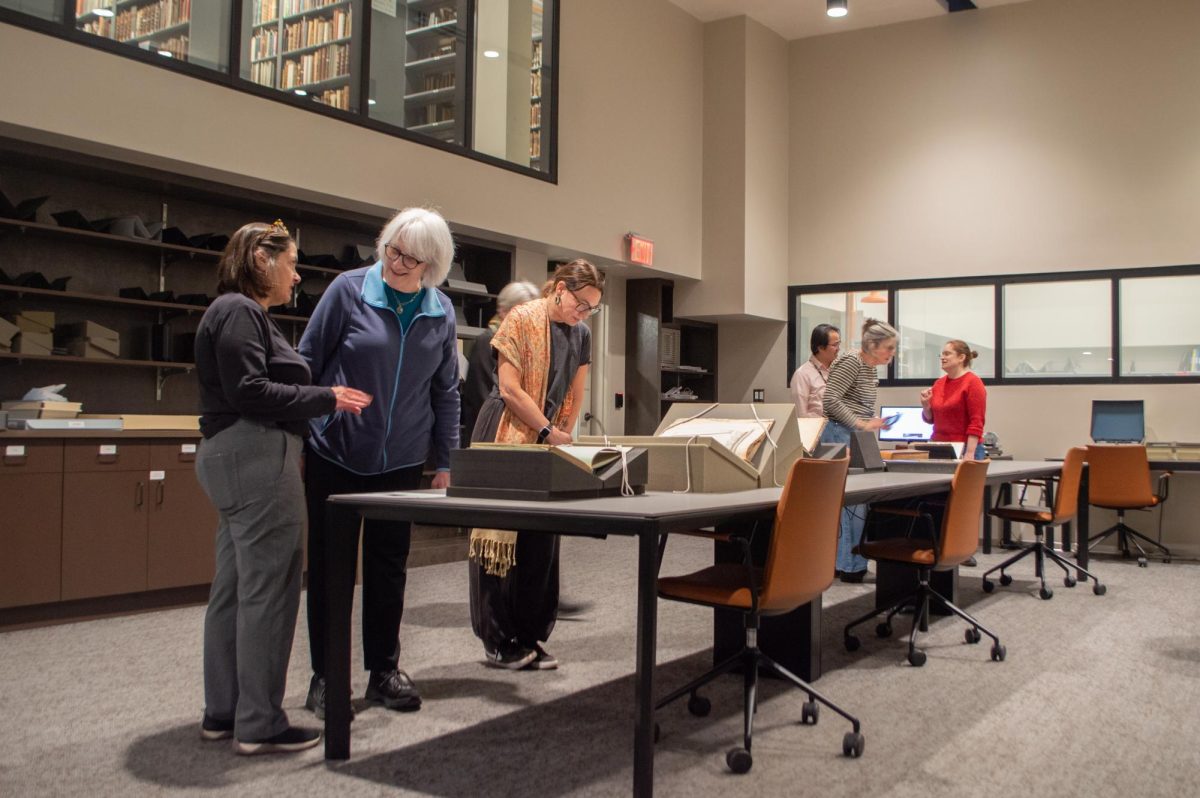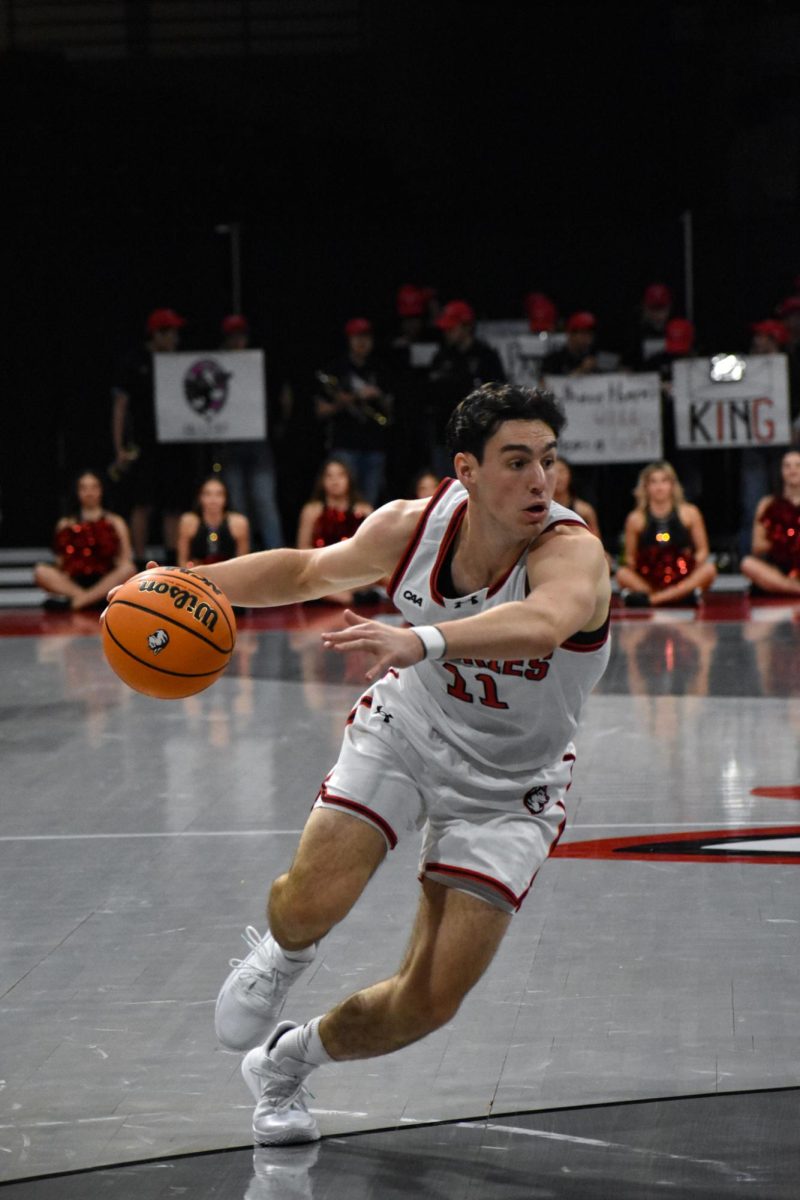By Anne Steele, News Correspondent

Michael Behan has taken three of the buzz words on signs around campus – globalization, entrepreneurship and sustainability – and made them reality.
In August, Behan, a middler business major with dual concentrations in social entrepreneurship and finance, founded Njabini Apparel, a non-profit, fair-trade business that sells handmade wool products from Njabini, Kenya. Behan came up with the idea while volunteering at a Njabini’s children’s home during July and August.
“[Our] mission is to employ single, previously unemployed mothers to make hats and scarves and to support microbusiness, to create sustainable change and development,” Behan said.
Behan said he sees Njabini Apparel as a tool for multi-faceted change.
The first order, 50 hats and 50 scarves, arrived in the United States in October. Behan said even though it’s still early, sales of the hats, which cost $30, and the scarves, which cost $20, have been very successful.
Behan has been involved with philanthropy since the age of 12, when he started helping out with Flying Kites, a non-profit organization that raises the standard of living for impoverished children around the world by providing them with education and housing. About half of the company’s profits subsidize Flying Kites’ Magnet Effect Program, an outreach initiative that aims to partner individuals, nonprofits and corporations to bring about sustainable development, as well as address issues of poverty in rural Kenya.
The rest of the profits are reinvested into Njabini Apparel for new orders and spinning wheels. Behan said he hopes to start implementing empowerment seminars and training for the women.
Behan has made appearances at Northeastern social entrepreneurship conferences showcasing the products, but most of the products have been sold through friends and people affiliated with Flying Kites.
“I’ve just been selling them around Boston,” Behan said. “We have a website and Flying Kites volunteers come back and sell [the products] to their communities.”
Products are also being sold at Boston University and Boston College. Behan said he hopes to expand the company by having representatives at schools around the country. The first order sold out in 10 days at the Northeastern Bookstore.
Starting in January, Behan will be directing the Magnet Effect Program. His work from January through July will also serve as his self-designed co-op, which has been approved by Northeastern. He hopes that he will be able implement some of his plans for Njabini Apparel during this upcoming trip.
“While I’m directing Magnet Effect, [a short term goal] for Njabini specifically is to work with the women employed now and employ as many women as we can,” Behan said. “The biggest problem we have is not enough inventory.”
He also hopes to expand variation within the inventory. As of now, hats and scarves are being produced, but soon to come are slippers, mittens and bags.
Behan hopes that Njabini Apparel will eventually subsidize the cost of running Magnet Effect, empower the women and stimulate the local economy.
Further down the road, he hopes to expand throughout rural Kenya and to have products sold in fair trade stores, online as well as dispersed to sales representatives around the country. He said he also hopes his products will become more cost-efficient.
Behan is optimistic about his business, and said he sees it as an opportunity to learn and to get Northeastern students involved.
“[This project] directly ties into my academic research,” Behan said. “We’re putting together a team to work in Boston to develop and grow the business while I develop the business in Kenya. And those are all Northeastern students.”
Behan said students who want to get involved are always welcome, especially since spreading awareness of Njabini Apparel in Boston will be a key factor in further success.
Feedback about the products have been positive thus far, he said. As current inventory consists of winter accessories, many have been purchased for Christmas presents.
Paige Marze, a sophomore international business major who recently purchased a hat, said she was “really happy with it.”
Marze said she was conscious of the holistic benefits of the product and Behan’s program.
“It’s a good thing because it’s sustainable,” Marze said. “The more hats and scarves that are bought, the more jobs are created.”
Beyond serving a cause, some said the products are also stylish. Hats come in three color options: the natural black and white colors of the sheep used, mixed green or orange and purple. Scarves also come in three options: the same all-natural colors, red and white or purple and blue.
“It’s cute,” said Alexandra Herzer, middler marketing student who purchased a two-tone striped green hat as a present for her sister.
Herzer said although the prices are high, it was not an issue because the money is going to a good cause.
“The idea is sustainable change – social, financial and economic,” Behan said. “That’s what I aim to do. I’ll have a lot of work ahead of me, but through this business, and with Magnet Effect, we have the potential to make serious impact on the Njabini community and surrounding communities in Kenya.”
Behan said his hope is that providing these women with a venue to make profit on their talent will help bring a promising future to them and their children.
“These woman were so incredibly talented,” Behan said. “All I had to do was give them the hat that was on my head and the next day she had made one exactly like it.”
Behan said he sees immense capability and possibility for the future of his new company.
“I want to emphasize potential in this type of business. We are all just so fortunate to be in America,” Behan said. “[We should] take advantage of that and use it for good.”
With a big order coming in next week, Behan said he hopes people will be able to purchase products online in the near future. For now, people who would like to purchase a product can send him an e-mail at mbehan@flyingkitesglobal.org.








